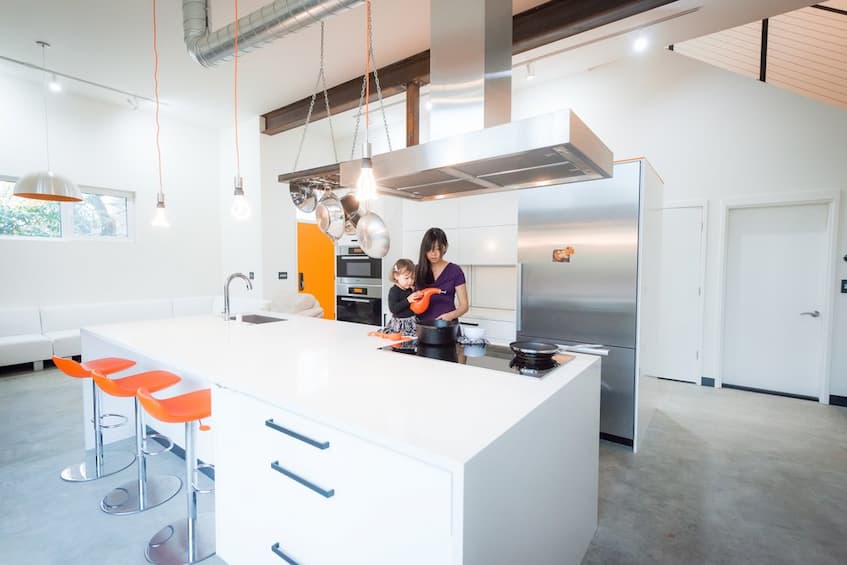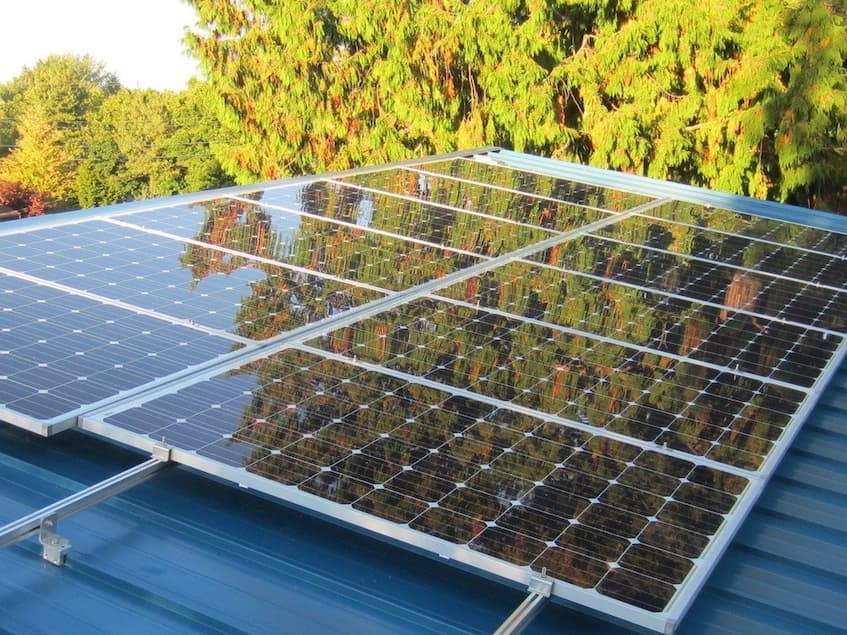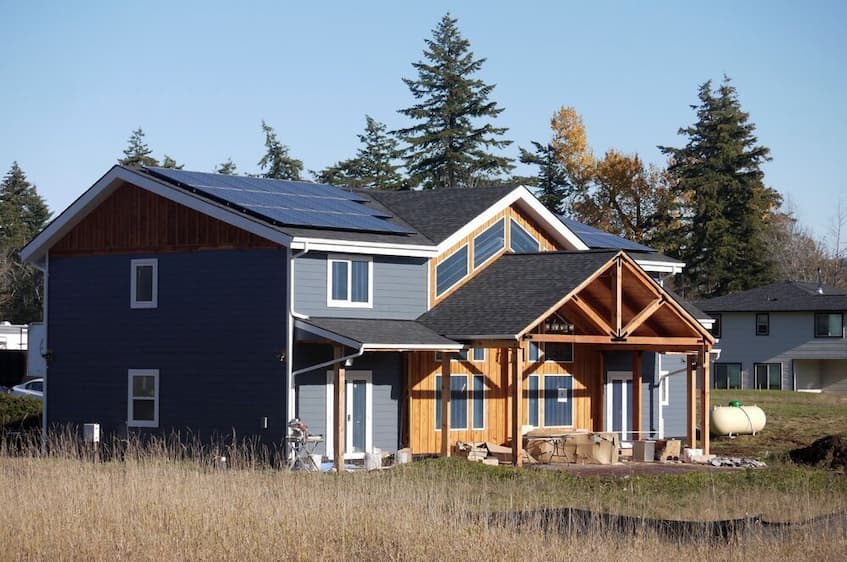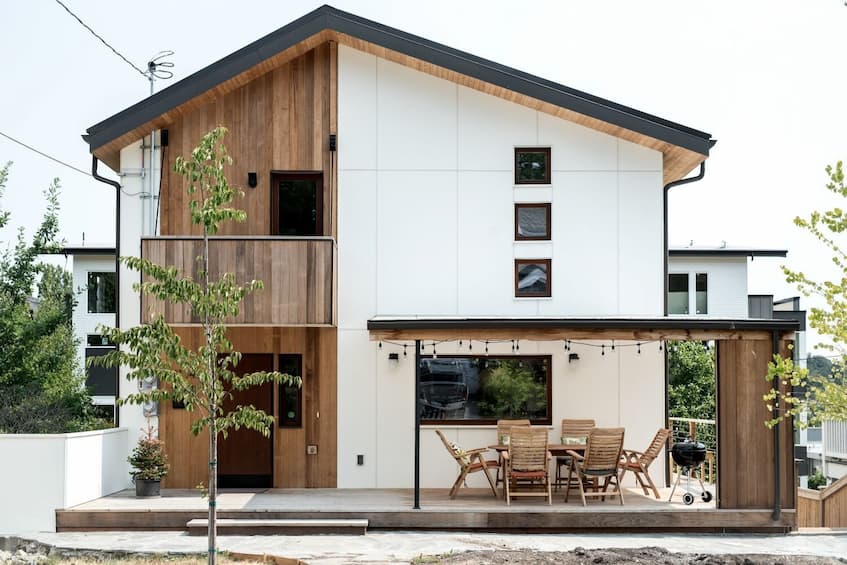
Net zero homes generate as much energy as they use
What is a net zero home? A net zero or zero energy home achieves a state of energy equilibrium, where the energy produced on site offsets the energy consumed by the home over the course of a year.
It utilizes a combination of energy-efficient design, advanced insulation, air sealing, and renewable energy systems to achieve this balance.
The ultimate goal of a net zero home is to minimize reliance on non-renewable energy sources and maximize energy efficiency, creating a comfortable and eco-friendly living space.
Homes can even be designed to be net positive, meaning they actually produce a net surplus of renewable energy, often enough to charge an electric car.
Zero energy ready homes, on the other hand, are designed and built to one day achieve the zero energy goal but do not have the solar panels installed at the beginning.
Key Features of Zero Energy Homes
Energy efficient design and materials
At the heart of a net zero energy home lies its energy efficiency and insulation. These homes are meticulously designed and built to minimize energy waste and maximize energy conservation.
This is achieved through a combination of high-performance insulation materials, such as SIPs panels or cellulose, and advanced construction techniques that ensure an air tight envelope and minimal heat transfer. By reducing the need for excessive heating or cooling, zero energy homes minimize energy demands and lower utility bills.

Renewable energy generation
Zero energy homes are most often equipped with solar panels to generate energy. Excess power generated during the day is fed back into the grid, and when the sun sets, the house draws the power it needs back from the grid.
Rather than using batteries to store energy (although backup batteries are an option), a zero energy home uses the municipal power grid as a sort of giant battery bank, putting into it as much renewable energy as it takes out.
Should you build a Net Zero Home?
Yes! There are many benefits. Here are just a few.
Energy Cost Savings
Building a zero energy home provides substantial long-term energy cost savings. By producing their own energy and reducing reliance on external sources, homeowners can significantly lower their utility bills. A net zero energy bill (in which you only pay connection and service fees but no energy usage charges) is achievable.
Although the initial cost to build a net zero house may be slightly higher, the return on investment in terms of reduced energy expenses makes net zero homes financially advantageous in the long run.
See also: Zero Energy Home Cost to Build Calculator
Environmental Advantages
By minimizing or eliminating dependence on fossil fuels, zero energy homes reduce greenhouse gas emissions and help combat climate change. They serve as models for sustainable living and contribute to a cleaner and healthier planet for future generations.
Better livability
Net zero homes prioritize occupant comfort and well-being. With effective insulation and air sealing, these homes maintain consistent indoor temperatures, resulting in greater comfort throughout the year. Additionally, the use of natural daylighting and ventilation systems enhances the overall livability of the space.
Improved Indoor Air Quality
Net zero homes are designed with a focus on indoor air quality.
The meticulous sealing and insulation techniques employed in their construction reduce the infiltration of outdoor pollutants, allergens, and contaminants. Advanced ventilation systems ensure a constant supply of fresh air, promoting a healthy living environment for the occupants that is oxygen-rich and free of mold and mildew.
Enhanced Comfort and Durability
Net zero homes are built to last and tend to require less maintenance compared to conventional homes.
The use of high-quality sustainable materials and advanced construction techniques improves the durability and longevity of the building. This results in fewer repairs and replacements, saving homeowners both time and money in the long term.
Basics of Designing and Constructing a Net Zero Home

I can’t cover all the considerations that go into properly designing a zero energy home in this post, but here are a few you might encounter as you work with a designer to plan your net zero home.
While these considerations are not totally unique to net-zero design, they do take on greater importance when you’re aiming for the net zero energy goal.
- Site selection: In many cases, homeowners may already have their site picked out or purchased, and the designer will have to work with what’s there. However, it’s even better if you can collaborate with your designer to select a lot that has minimal shading and good south-facing orientation.
- Shape: In general, more compact cube-like shapes, as opposed to spread out shapes, provide better efficiency. A two-story home with a compact footprint usually retains heat better than a wide ranch house with lots of exposed surface area.
- Window placement: In climates with colder winters, it’s important to harvest heat from the sun, which sits low in the sky. In the summer, when temperatures (and the sun’s arc) rise, roof overhangs should block out the rays, so the house doesn’t overheat. Windows on the north side should generally be minimized because they are a net heat loss in the winter.
- South-facing roof area: You’ll need plenty of south-facing roof area on which to mount solar panels for their best orientation. A saltbox-style roof, with one side larger than the other, works great, but you have many choices to suit your tastes.
- Materials choices: In traditional home design, homeowners often choose materials for their aesthetic appeal and cost. In designing a zero energy home, you’ll want to also consider their potential to meet your efficiency goals. Framing and insulation materials choices are especially important.
- Energy modeling: Zero energy home designers use software to analyze the design of a home and calculate how much PV will be needed to meet the net zero goal.
- Performance testing and certification: Unlike with most traditional home design, net-zero home designers and builders will often test and monitor the home during and after construction for things like air-tightness and real-world energy use. Some homeowners choose to take it a step further and seek net-zero certification from independent energy consultants, although this is certainly not required.
Initial Costs and Return on Investment

While building a net zero home offers numerous benefits, one worry many potential homeowners have is whether a zero energy home will cost more. It’s a valid concern.
The initial cost of construction can indeed be higher compared to conventional homes, primarily due to the incorporation of renewable energy systems and sustainable materials. However, the savings on your power bills will eventually recoup the initial extra investment, usually over the span of a couple decades. Potential rebates and incentives, coupled with the rising cost of energy, could potentially shorten the payback period significantly.
In addition to the long-term return on your investment, you can have the immediate satisfaction that you are drastically reducing your carbon footprint and creating a more comfortable, more sustainable environment for your family.
We’re here to help
A net zero home can be a great way to reduce your carbon footprint, save on energy costs, and create a comfortable and sustainable living space. If you’re interested in exploring the process of building one and need guidance or assistance, we’re here to help. Our team works exclusively on net zero homes and can provide expert advice, readymade and custom zero energy home designs, and consulting services tailored to your needs. Contact us today to get started on your journey towards a sustainable and energy-efficient home.
